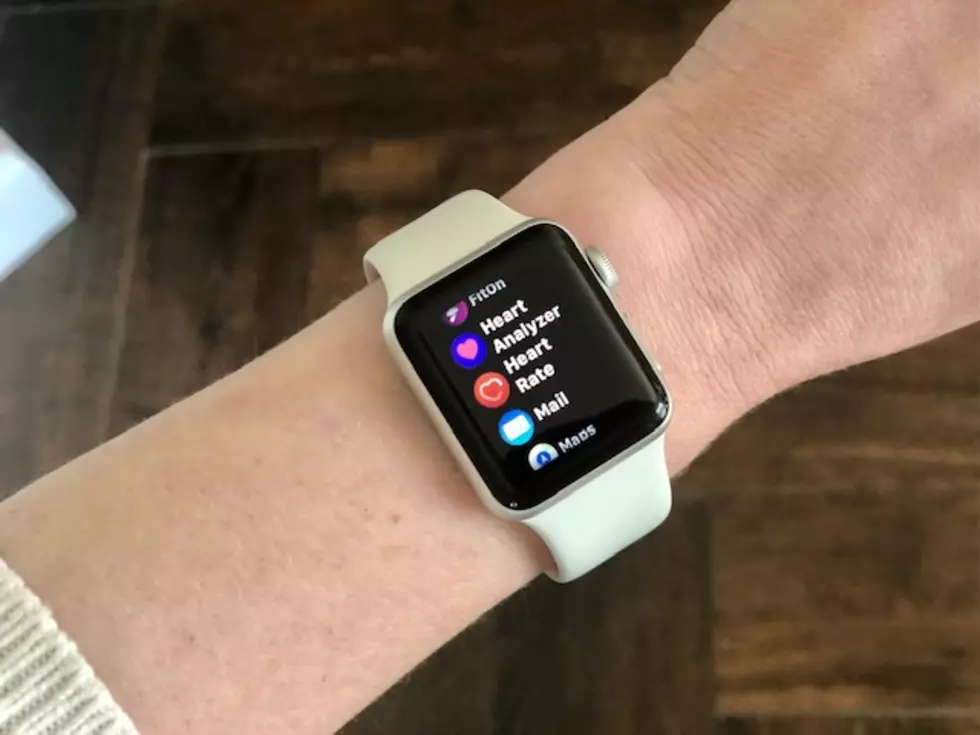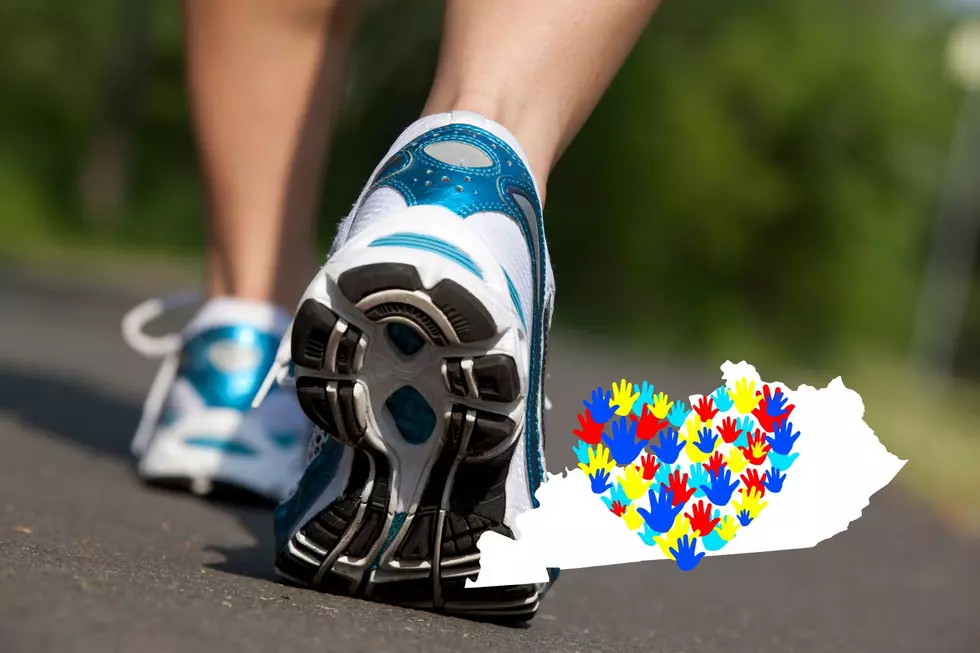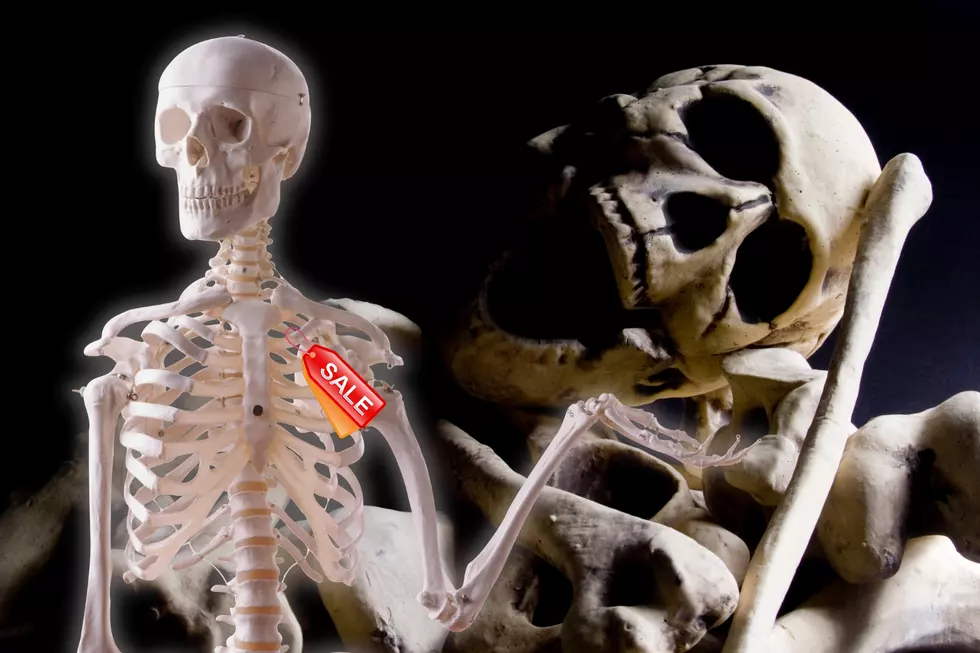
I’m a Health Nut in My Thirties & I Recently Learned that I’m Not Taking Care of My Heart
I'm in my late Thirties. I'm either 38 or 39 and I just don't really feel like doing the math right now to figure out which one. Anything past 21 is all pretty much the same anyway, right? Anyway, thanks to my husband, I recently discovered that I'm not taking care of my heart as well as I should.
For Christmas this year, my husband gave me an Apple Watch. He's a REALLY good gift giver. Like, the best. I suck. Today is his birthday and he's getting a lunch box. It's heated, OKAY? Anyway, the Apple Watch was a bit of a learning curve since I used a Fitbit for several years. And it wasn't until last month that I started poking around in the Apple Heart Analyzer app. Until recently, I always breezed through Heart Awareness Month and scoffed at those who said you need to take care of your heart. Young and dumb, right? So, what I learned was a bit surprising and I changed my lifestyle because of it...
A little background about me. As you know, I'm 38eschque-years-old. I have a low BMI, don't smoke, and eat really healthy (for the most part). So, I thought I was overall on the healthy side. But, my watch said HOLD YOUR HORSES, OH UNHEALTHY ONE.

My first stop on the Heart Analyzer app was the Dashboard. There are lots of graphs and trends to process. One of the numbers that stuck out to me was my BPM or beats per minute. Mine is 77. According to the Mayo Clinic, "A normal resting heart rate for adults ranges from 60 to 100 beats per minute. Generally, a lower heart rate at rest implies more efficient heart function and better cardiovascular fitness. For example, a well-trained athlete might have a normal resting heart rate closer to 40 beats per minute." So, BOOM, all good there!
My next stop was the Heart Home page. The watch measures my cardiac level, maximum heart rate (HR) proximity, resting HR, VO2 Max, and average recent heart rate variability (HRV). There's a lot to unpack here.
Cardiac Level
Let's start off strong. My cardiac level in January was LOW. Ah, poop. I thought I was healthy! But, I am not engaging my heart enough. So what should I be doing? According to the Physical Activity Guidelines issued by the U.S. Department of Health and Human Services, you should be engaging in moderate-intensity cardio for at least 150 minutes per week. But this should be split up - you should get about 30 minutes a day, five days a week. And you should be moving throughout the day. HIIT (short, high-intensity interval training) workouts are a great way to improve your cardiac level.
Resting Heart Rate
So, the normal is 60-100 and since I'm at a 67, I'm on the low end of that. The Mayo Clinic does go on to list several factors that go into why your heartbeat is fast or slow including age, body size, smoking status, and temperature, among other factors. Your fitness levels also factor into this. Hmmm - my cardiac level is LOW. :( {sad face} With some effort, I hope to improve this number.
VO2 Max
This was the big number that got to me. According to Wikipedia, "V̇O2 max is widely used as an indicator of cardiorespiratory fitness. In 2016, the American Heart Association published a scientific statement[3] recommending that cardiorespiratory fitness (CRF), quantifiable as V̇O2 max, be regularly assessed and used as a clinical vital sign. This statement was based on mounting evidence that lower fitness levels are associated with a high risk of cardiovascular disease, all-cause mortality, and mortality rates stemming from various types of cancers. In addition to risk assessment, the AHA recommendation cited the value of measuring fitness for validating exercise prescription, physical activity counseling, and improving both patient management and patient health."
My number is a whopping 26.8 ml/(kg.min). According to both my watch and a handy diagram on tanita.edu, my VO2 Max number is "Poor." Aw LAWD! The good news here is according to the website thecultofmac.com, VO2 Max can only accurately be measured by using a face mask that measures how much oxygen is going in and out of your lungs. The watch just makes a prediction based on heart rate changes during exercise. So, the accuracy isn't perfect by a longshot. But, you should watch the trends from month to month - especially if you make changes to your exercise routines.
Heart Rate Variability
HRV is a measure of the variation in time between each heartbeat. This time is controlled by the brain and can be altered by our stress levels, physical fitness, and sleep. Harvard.edu warns that a low HRV has been linked with depression, anxiety, and cardiac-related deaths. Egads! This is serious, people!
The average HRV score is 59.3 (on a 1-100 scale) with 75% of users HRVs scores falling between 46.3 and 72.0. Now Harvard does go on to warn users that this number isn't terribly accurate either. The best way to get a measure on this is for a doctor to analyze a long strip of an electrocardiogram or by using buy a chest strap heart monitor and download an app to analyze the data. Mine was 14.4 ms which I don't believe for a second is accurate. Sometimes I don't wear my watch when I sleep and this can change the number significantly. But again, it's something to keep watch on when I make lifestyle changes. Myhealthyapple.com gives some tips on how to improve this score.
The Takeaway
So, why after analyzing all these things and learning that most of them aren't too accurate do I still feel like my cardiac health is in jeopardy? One simple thing... this watch was not lying about my cardiac level. LOW/SAD FACE.
Aside from yelling at my family on the reg, very seldom do I do what is necessary to get my heart rate up. I needed to get more cardio into my day. So, I put a plan into place using HIIT workouts, my elliptical, and I promised the dog at least three walks a week. With the weather warming up, he's getting more than three. He won't let me break my promises. He has those puppy dog eyes.
I'm happy to report that I started making changes in February and my current cardiac level is now MEDIUM! HOORAY! Progress is the name of the game and I'm so happy that my watch helped me realize that I need to make my heart health a priority!
**Obviously, I am not a doctor and I didn't even sleep at a Holiday Inn. It's always important to talk to your doctor about your exercise and lifestyle changes as well as your concerns about your heart health.**
Goosebumps and other bodily reactions, explained
More From WKDQ-FM









